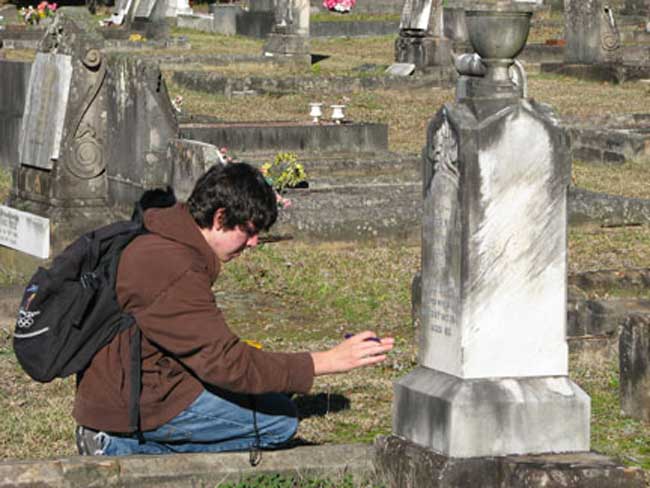Gravestones Hold Secrets to Earth's Climate Past

Get the world’s most fascinating discoveries delivered straight to your inbox.
You are now subscribed
Your newsletter sign-up was successful
Want to add more newsletters?

Delivered Daily
Daily Newsletter
Sign up for the latest discoveries, groundbreaking research and fascinating breakthroughs that impact you and the wider world direct to your inbox.

Once a week
Life's Little Mysteries
Feed your curiosity with an exclusive mystery every week, solved with science and delivered direct to your inbox before it's seen anywhere else.

Once a week
How It Works
Sign up to our free science & technology newsletter for your weekly fix of fascinating articles, quick quizzes, amazing images, and more

Delivered daily
Space.com Newsletter
Breaking space news, the latest updates on rocket launches, skywatching events and more!

Once a month
Watch This Space
Sign up to our monthly entertainment newsletter to keep up with all our coverage of the latest sci-fi and space movies, tv shows, games and books.

Once a week
Night Sky This Week
Discover this week's must-see night sky events, moon phases, and stunning astrophotos. Sign up for our skywatching newsletter and explore the universe with us!
Join the club
Get full access to premium articles, exclusive features and a growing list of member rewards.
Gravestones may hold secrets of how the Earth's atmosphere has changed over the centuries, and scientists are now asking for the public's help to read these stones.
Little by little, atmospheric gases dissolved in raindrops cause the marble in gravestones to erode. As such, headstones can serve as diaries of changes in atmospheric chemistry over the years due to pollution and other factors.
By gathering data from marble gravestones of different ages across the globe, scientists hope to produce a world map of the weathering rates of these stones. They are asking volunteers to take measurements using simple calipers and GPS, following a set of scientific protocols that are explained online at the Gravestone Project. They can also log data into the scientific database at the site.
Naturally, volunteers are asked to follow local regulations, laws and customs when visiting graveyards, and they may need to seek permission from land managers before collecting data from these sites. Also, graves are sacred places for many in the community, and volunteers are asked to not walk on, disturb or damage a grave or gravestone in any way.
This project is part of a new global citizen science program called EarthTrek, which is administered by The Geological Society of America in partnership with organizations across the country and around the globe. Other scientific research projects currently underway through EarthTrek involve spotting hummingbirds and investigating invasive plant species.
"Being involved in EarthTrek provides people with the opportunity to be involved in real scientific research," said EarthTrek director Gary Lewis. "The data they collect while participating in a wonderful outdoor activity may make a real difference in the way we manage our environment. And it's free to participate."
More projects are soon to be added. "We are working with scientists on new projects involving hail, natural springs, animal and plant inventories, and much more," Lewis said.
Get the world’s most fascinating discoveries delivered straight to your inbox.

 Live Science Plus
Live Science Plus










